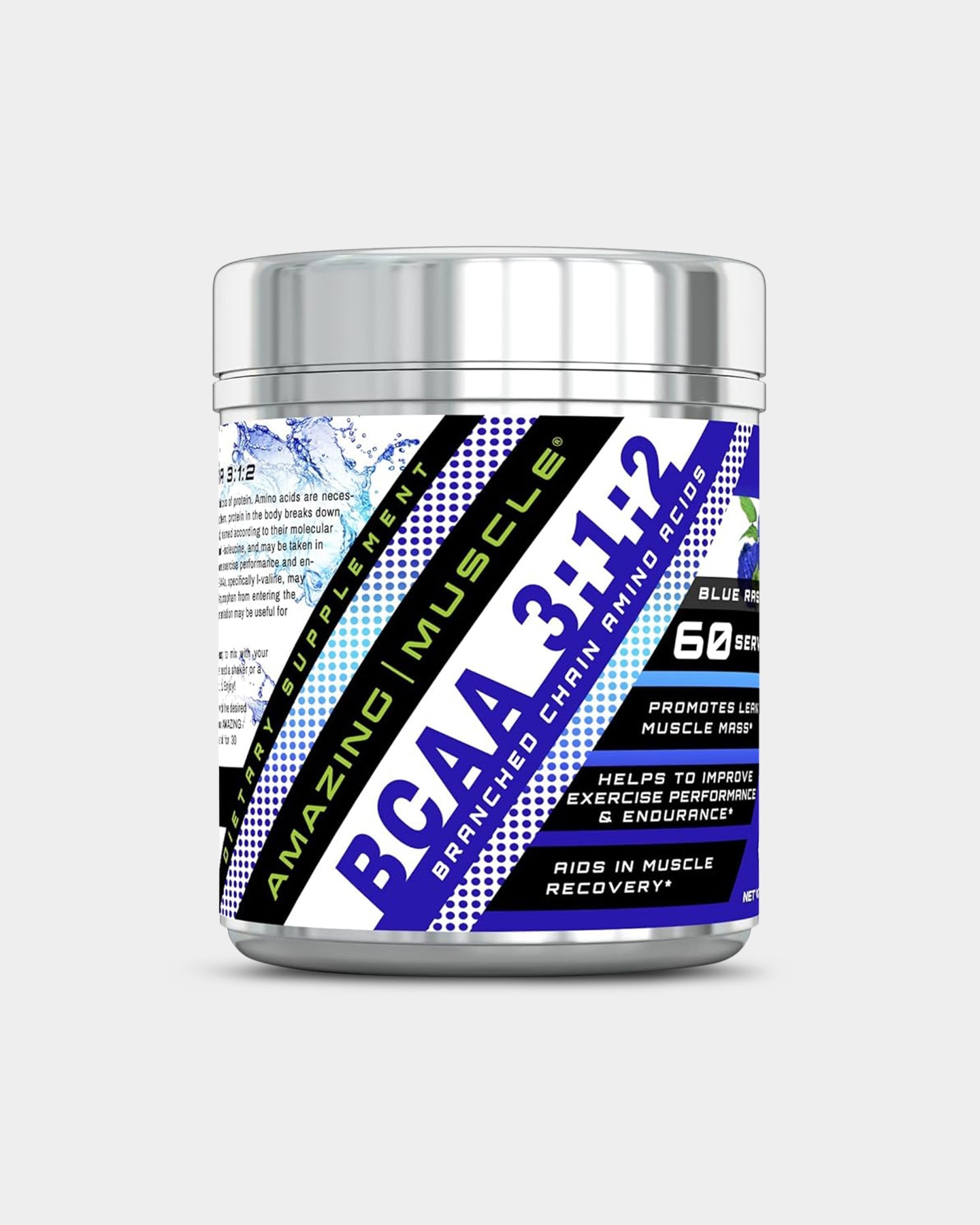Effective Ways to Use BCAA for Improved Muscle Recovery in 2025
In the fast-paced world of fitness and sports, optimizing recovery is paramount for athletes and fitness enthusiasts alike. Branched-Chain Amino Acids (BCAAs) have gained significant attention for their vital role in muscle recovery and growth. In this comprehensive guide, we will explore the numerous BCAA Vorteile, proper BCAA Dosierung, and practical applications of BCAAs in your fitness regimen.
This article will delve into key topics such as the BCAA Wirkung, effective BCAA Einnahme strategies for both men and women, and how BCAAs can enhance overall performance. Additionally, we will review the best practices for BCAA für Sportler and their impact on muscle repair and endurance training.
As we navigate through these essential insights, you’ll discover how to incorporate BCAAs into your diet, key considerations for purchasing BCAA supplements, and what to watch for regarding BCAA Nebenwirkungen. Let’s unlock the full potential of BCAAs for improved muscle recovery and athletic performance!

Understanding BCAA: Benefits and Mechanisms
Building on the fundamentals of BCAA, it’s crucial to grasp their definitions and mechanisms. BCAAs consist of three essential amino acids: leucine, isoleucine, and valine, which play a significant role in muscle protein synthesis.
What are BCAAs?
BCAAs are unique among amino acids due to their branched-chain structure, which allows them to skip liver metabolism and directly enter muscle tissue. This characteristic enables faster absorption and utilization during workouts, making them an excellent option for those looking to maximize muscle recovery after training.
Health Benefits and Performance Enhancements
One of the most notable BCAA Vorteile is their ability to reduce muscle soreness after exercise. Research shows that BCAAs can lower levels of creatine kinase and myoglobin, markers that indicate muscle damage. Additionally, they may help decrease exercise-induced fatigue, allowing for longer and more intense workouts.
Supporting Weight Management
For those aiming for weight loss or maintenance, incorporating BCAAs can prove beneficial. They help preserve lean muscle mass while in a caloric deficit, facilitating fat loss while minimizing the typical muscle loss associated with dieting. BCAAs can also aid in appetite control, making it easier to stick to a nutrition plan.
Scientific Research on BCAAs
Numerous studies have highlighted the efficacy of BCAAs in athletic performance and recovery. A review published in the Journal of Nutritional Science indicates that BCAA supplementation encourages greater muscle growth and recovery post-exercise than placebo groups. This evidence underscores the importance of BCAAs in any strength training program.
Recommended BCAA Dosage and Timing
With these basics established, let’s navigate the specifics of BCAA Dosierung and timing for optimal results.
Determining the Right Dosage
The ideal BCAA dosage can vary significantly based on individual factors such as body weight, training intensity, and fitness goals. Generally, a dosage of 5-10 grams before or after a workout is effective for most individuals. It is essential to adjust this based on your personal response and the specific product being used.
Time Your BCAA Intake
The timing of BCAA supplementation can greatly impact its effectiveness. Many athletes consume BCAAs approximately 30 minutes before training, during workouts, or directly after workouts to facilitate muscle recovery. This practice ensures that amino acids are readily available for muscle repair and growth.
Choosing Between BCAA Formats
BCAAs are available in various forms, including powders and capsules. Each format offers convenience and accessibility. However, BCAA powders often allow for greater flexibility in dosing and mixing with other supplements. The choice ultimately depends on individual preference and comfort.
Natural Sources of BCAAs
While supplements are a convenient option, it’s essential to also consider natural food sources high in BCAAs. Foods like chicken, beef, eggs, and dairy products are excellent sources. Moreover, plant-based sources such as soybeans and lentils can provide adequate BCAA levels for those following a vegan diet.
By incorporating both supplements and natural sources, individuals can maximize their BCAA intake effectively.

Practical Applications of BCAA for Recovery
Taking this concept further, let’s explore practical applications of BCAAs in recovery routines.
Using BCAAs during Workouts
Incorporating BCAAs during workouts has been shown to reduce muscle breakdown and combat fatigue. A simple mix of BCAAs in your hydration drink during exercise can lead to enhanced endurance and performance, especially in longer training sessions or competitive events.
BCAAs for Muscle Repair
Post-workout recovery is critical for muscle repair, and BCAAs play a vital role in this process. Consuming BCAA supplements soon after training stimulates protein synthesis, leading to faster recovery and less muscle soreness, essentially getting you back to your workouts sooner.
BCAAs in Combination with Other Proteins
When consumed with protein shakes, BCAAs can significantly boost muscle recovery. Combining whey protein with BCAA supplementation optimizes the repair process, leading to effective results for muscle growth and strength. The synergistic effect of both complements the recovery cycle, making it imperative for athletes to consider this combination.
Addressing Common Concerns and Misconceptions
Connected to this principle, let’s address some typical concerns surrounding BCAAs.
Potential Side Effects of BCAA Supplementation
While generally safe for most individuals, excessive BCAA intake can lead to gastrointestinal issues or interfere with the body’s amino acid balance. It is important to adhere to recommended dosages and consult a healthcare professional if you have underlying health conditions.
BCAAs and Weight Loss: Myth or Reality?
There is a common misconception that BCAAs are solely for muscle gain. However, BCAAs can also assist in weight loss by maintaining muscle mass during a caloric deficit. This dual functionality highlights the importance of BCAAs for diverse fitness goals.
BCAAs for Women: Is There a Difference?
Women can benefit from BCAAs just as much as men, with studies indicating that BCAAs help improve recovery times irrespective of gender. BCAAs enhance muscle repair and can assist in achieving fitness goals, making them an excellent addition to any female athlete’s routine.
FAQ: Addressing Common Questions About BCAA
What are the benefits of using BCAAs?
BCAAs help in muscle recovery, decrease soreness, and enhance exercise performance, making them essential for athletes and fitness enthusiasts.
Can BCAAs aid in muscle growth?
Yes, BCAAs stimulate protein synthesis, essential for muscle growth and recovery after workouts.
How should I take BCAA supplements?
Taking BCAAs in doses of 5-10 grams around your workouts is recommended. You can take them before, during, or after your training sessions.
Are there any risks associated with BCAA supplementation?
Exceeding the recommended dosage may lead to side effects like gastrointestinal discomfort. Consult a physician if unsure about your intake.
Why should I incorporate BCAAs into my diet?
Incorporating BCAAs can lead to improved recovery, better workout performance, and aid in maintaining muscle during weight loss.
In conclusion, BCAAs offer numerous advantages for muscle recovery and performance enhancement. By understanding BCAA Vorteile and proper usage, athletes can effectively integrate BCAAs into their training regimens. For those looking to optimize their fitness journey, exploring supplement options can prove to be a game-changer, helping to achieve desired fitness goals.
